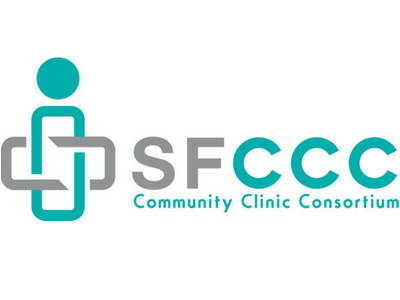NHC SF Member Blog: Service Through Integrated Care Coordination
My name is Hannah, and I serve on the second floor of HealthRight 360’s Integrated Care Center in San Francisco as an Opioid Use Disorder Care Coordinator. As a care coordinator, I help enroll and guide people in our clinic, communicate with the healthcare team so patients can receive the services they need, and provide a welcoming environment to those who enter our facility.
One of my primary responsibilities is assisting walk-in patients who wish to enroll in our medication-assisted treatment (MAT) program, which utilizes an approach of counseling with medicine to assist in recovery for people with substance use disorders. Every day, our clinic doors open, and those who are looking to enter Walden House, a HealthRight 360 residential facility for those undergoing substance use or behavioral health program treatment, can come in for screening with the intake team. Afterwards, I guide patients through the rest of the intake process by helping them complete forms, schedule appointments, and address questions before their appointment with our MAT intake providers. Throughout my time here, I’ve learned to become more resourceful, asking our staff whether we have bagged lunches for the day or keeping water cups handy to help our community members feel more comfortable in what may be an unfamiliar and turbulent time. Being part of an integrated care system also means that new patients who arrive at our clinic, whether it is for MAT intake or as a curious passerby, are welcome and encouraged to utilize other services such as primary care, dental care, mental health resources, and case management, regardless of their ability to pay.
At the same time, assisting with the resource center and referral coordination has also helped me develop an even deeper understanding of the community I serve. When I first started my term, I wanted to gain greater insight into the barriers that people face in healthcare, and I have come to recognize how social determinants of health can compound in complex and strenuous ways. For instance, for those currently in a vulnerable living situation, losing a phone or personal identification in an accident can be the difference between whether they can make a crucial appointment to secure housing or employment. In turn, the lack of stable housing or contact methods can delay important communication regarding time-sensitive healthcare matters like referral appointments or other services, such as delivery of durable medical equipment.
At the front of the resource center, my service partner Megan and I collaborate with the case manager to assist clients with navigating through community resources to address the needs for their next step, whether it is through informing them of St. Anthony’s hygiene hub and clothing closet, letting them know about their eligibility for California Lifeline’s phone service, or submitting an application for paratransit or housing. Ultimately, we aim to provide a grounded space patients can feel like they can return to when faced with a crisis. As I interact with our community patients, a daily combination of new and familiar faces and cases, I feel grateful and empowered towards my community and mentors to continue doing what I can to serve, with the hopes that my assistance can offer some aid or direction. At the same time, my experience has been humbling as I am only beginning to recognize how much more there is to learn about our community’s most critical needs and moreover, how to address these needs.
About the Author
Hannah Min (she/her) is one of the 2023-2024 NHC San Francisco AmeriCorps members. She is currently serving as one of the Opioid Use Disorder Care Coordinators at HealthRIGHT 360.


